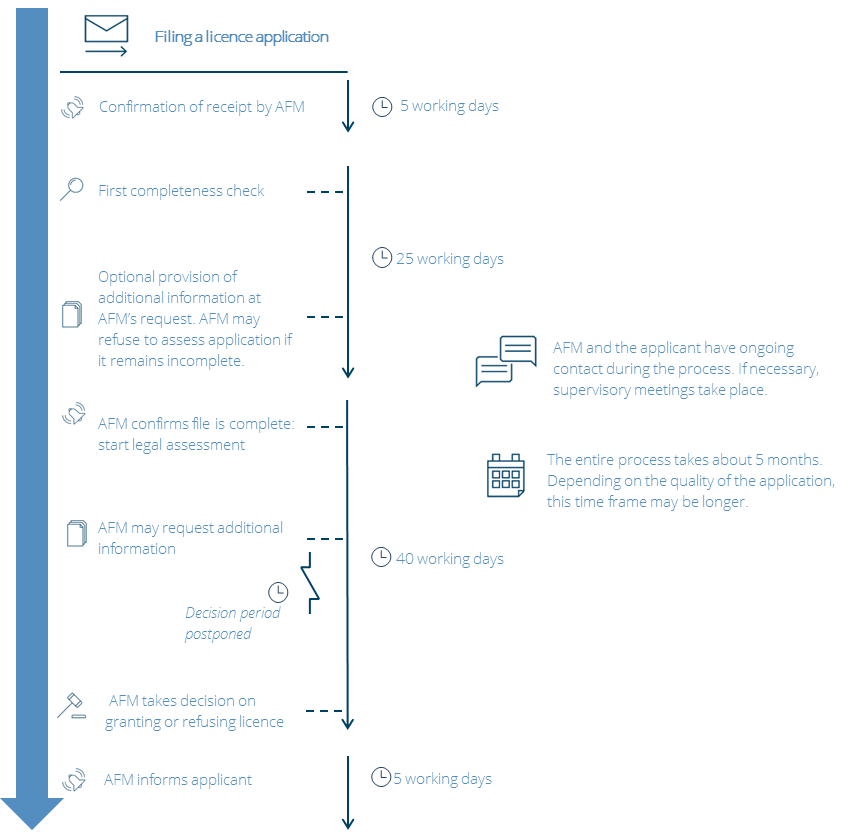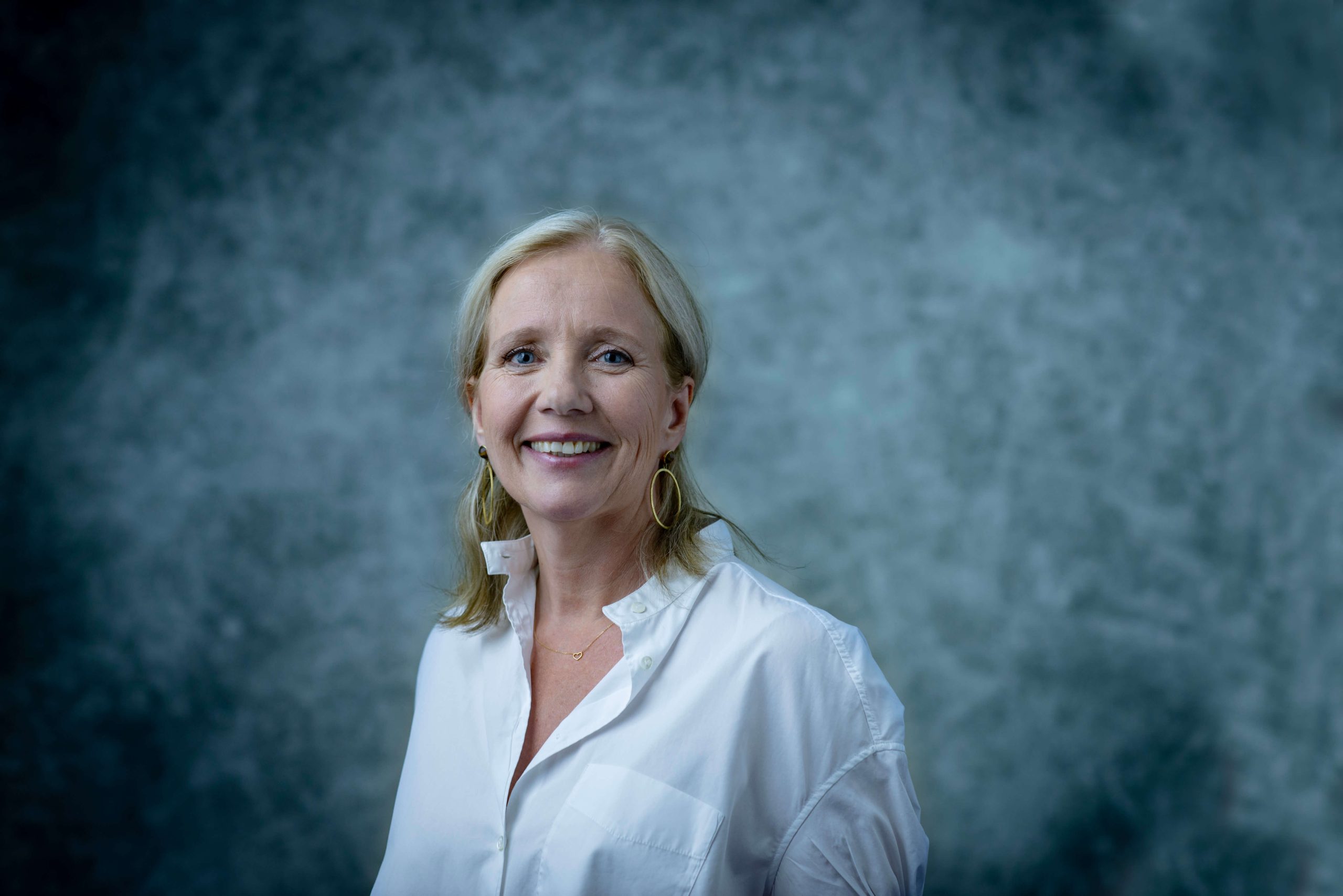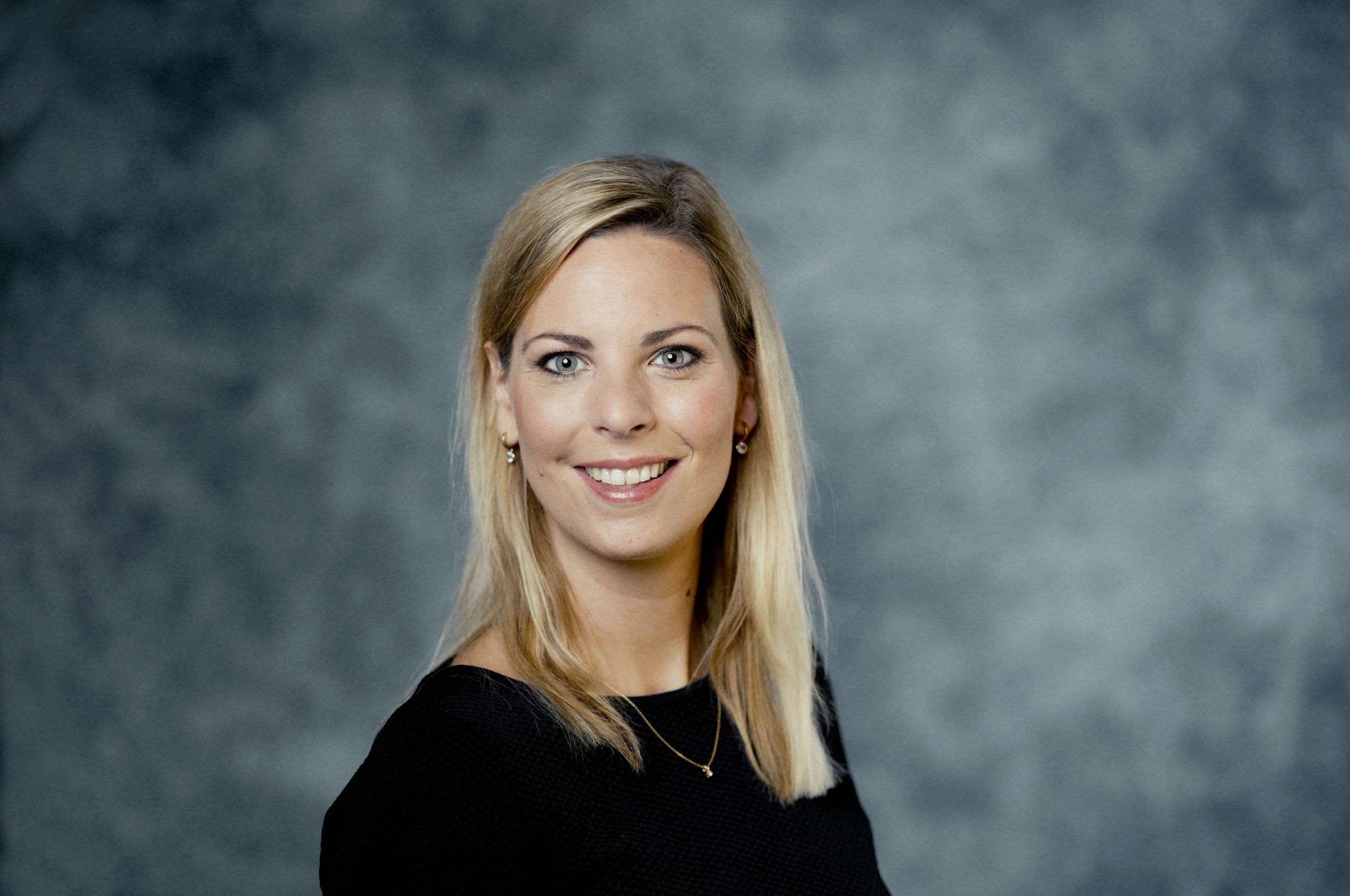The Dutch Authority for the Financial Markets (AFM) advises potential CASPs to prepare a comprehensive licence application and to submit it well in advance to avoid the risk of having to discontinue any activities for lack of the mandatory licence. Please find the key dates of the AFM licence application process in the timeline below:

The MiCAR largely contains rules on offering crypto-assets to the public. A key aspect in that regard is that parties offering their crypto-assets must give fair, clear and non-misleading information to the public. In addition, the MiCAR gives a separate set of rules for parties providing various services for the custody and the purchase and sale of crypto-assets. This article will only discuss the licence requirements for CASP’s.
Current situation
Since 2020, crypto service providers that wish to operate in or from the Netherlands have been required to apply for DNB registration. The registration requirement applies to two types of services:
- Exchange between crypto-asset and regular currency; and
- Custodian wallet provision.
In its assessment of registration applications, DNB uses admission requirements that share many similarities with licence applications. For example, DNB closely assesses anti-money laundering (AML) policies, including know-your-customer (KYC), transaction monitoring and conflicts of interest procedures. DNB also assesses the reliability and suitability of management board and supervisory board members, policymakers and holders of qualifying holdings.
Once registered, the crypto service provider can provide crypto services in or from the Netherlands. In contrast to the system used for investment firms, this registration cannot be used as a European passport to provide crypto services in other European countries.
Mandatory MiCAR licence
The registration requirement will lapse due to the MiCAR and will be replaced by an authorisation system for a wider range of crypto-asset services. The following services are under MiCAR subject to authorisation:
- providing custody and administration of crypto-assets on behalf of clients;
- operation of a trading platform for crypto-assets;
- exchange of crypto-assets for funds;
- exchange of crypto-assets for other crypto-assets;
- execution of orders for crypto-assets on behalf of clients;
- placing of crypto-assets;
- reception and transmission of orders for crypto-assets on behalf of clients;
- providing advice on crypto-assets;
- providing portfolio management on crypto-assets;
- providing transfer services for crypto-assets on behalf of clients.
In the licence application, the crypto service provider must demonstrate its compliance with all MiCAR requirements. This will require some preparation work, but it will be worth the effort. With a licence, CASPs can provide their services throughout the European Union after completing a relatively simple notification procedure for each Member State. This system will enable them to decide, based on strategic considerations, which Member State’s licence application process to follow and then expand into other Member States using the notification procedure (also referred to as the European passport). However, it will also entail ongoing requirements for crypto service providers, for example in terms of capital, governance and information to clients.
Applying for a licence
Process
The licence application process starts with the preparations to identify which MiCAR rules are relevant to the company, what adjustments must be made to its operations and how these adjustments are to be implemented. After that, all necessary documents must be collected to file the application with the AFM. The entire preparation process will take at least several months, and can increase depending on the number and type of crypto-asset services covered by the licence application.
After receiving the application, the AFM will assess whether the file is complete or whether additional information needs to be provided. If complete, the information in the file will be processed. The AFM will then have 40 days to make a decision. This period can be extended if the AFM requires additional information.
The AFM estimates that it will take at least five months to process a licence application if the application is complete and very well prepared, the products and services are not very complex or high-risk, and no major organisational changes will be necessary. The process will usually take more time, for example if additional information will be needed. Given the long time frames of preparing and processing a licence application, we advise crypto service providers to start preparations for the application in early 2024 and current registration holders to start no later than mid-2024.
The AFM process is as follows (based on the visual published on the AFM’s website):

Elements to address when applying for a licence
In the licence application preparation, it is important to address the elements that the AFM will assess. The AFM has published the following provisional risk-based elements:
- The scope of the licence application
- Governance of the applicant and any group affiliates
- Outsourcing and control mechanisms of the crypto service provider
- Segregation of own funds and client crypto-assets
- Sound information to clients
- Risk control and compliance
Next steps
Crypto service providers currently registered with DNB will have to apply for a licence with the AFM, just like new providers. In other words, a registration cannot be converted into a licence. And while the AFM has not introduced a lighter process and will not grant exemptions, these crypto service providers acting on the basis of a registration, have the advantage of already having professionalised their organisations due to the relatively burdensome registration application, which will be helpful in their preparations for the AFM licence application. There is therefore a real possibility that the AFM – especially for the elements falling within the scope of the registration requirement contained in the Money Laundering and Terrorist Financing (Prevention) Act (Wet ter voorkoming van witwassen en financieren van terrorisme) – will rely on DNB’s judgement.
New crypto service providers should consider early on in which jurisdiction they want to apply for a licence, from which they can then provide their services to other countries. A major advantage that the Netherlands offers is its reliable and knowledgeable regulator. The regulator is easy to contact, speaks English and accepts licence applications in English, is willing to make arrangements and meets its commitments. This will help to prevent unpleasant surprises. In addition, the Dutch regulator’s good reputation will ensure that the passporting of a Dutch licence to other Member States can be done relatively easily. Other reasons for parties to choose the Netherlands are its good connections via Schiphol Airport and its base of crypto and financial regulatory law experts. A new development emerging from the payment sector and other industries is that parties relocate to the Netherlands for reasons of reputation. Houthoff will be happy to advise you if you choose the Netherlands as the jurisdiction for your licence application.
In short, now is the time to start preparing for the licence application. The AFM advises crypto service providers to engage professional experts. Houthoff is happy to assist you in determining which MiCAR rules apply to you and guide you through the licence application process and in dealings with the AFM. This way, you can be assured that your company will meet the new regulations on time, preventing any suspension or discontinuation of services.
For more information on MiCAR, please do not hesitate to contact Berry van Wijk, Juan Vervuurt or Lisanne Haarman.






